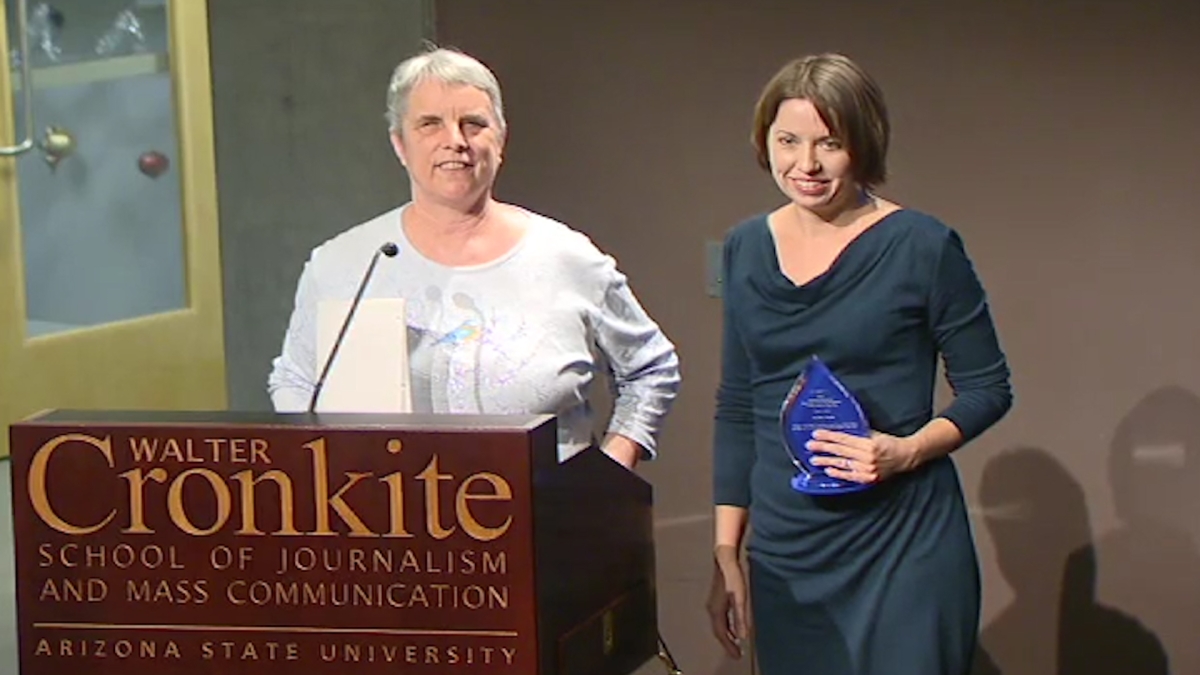ASU Insight: Katherine Schneider Journalism Award for Excellence in Reporting on Disability

ProPublica reporter Heather Vogell
ProPublica reporter Heather Vogell, the winner of the Katherine Schneider Journalism Award for Excellence in Reporting on Disability, discussed her award-winning story. She was introduced by Kristin Gilger, associate dean of the Cronkite School.